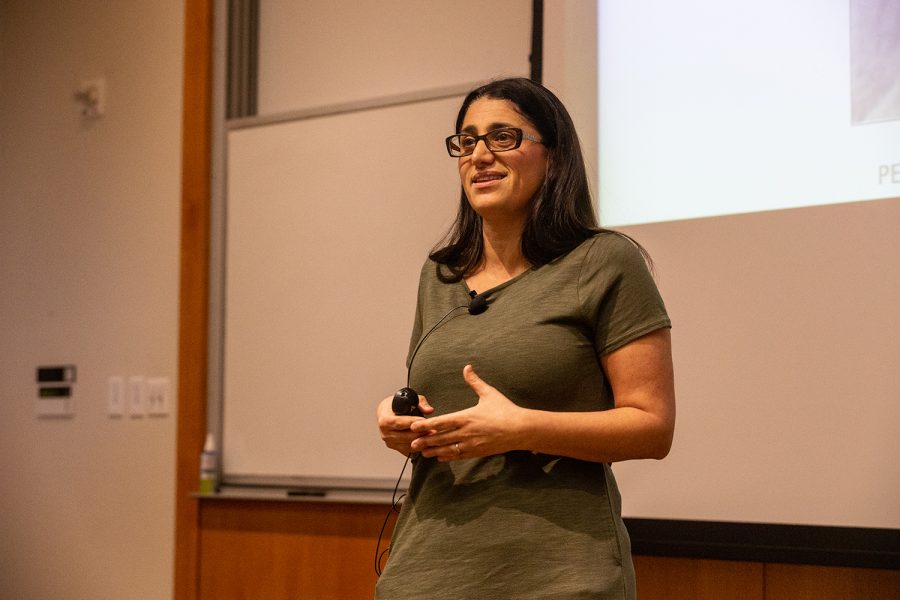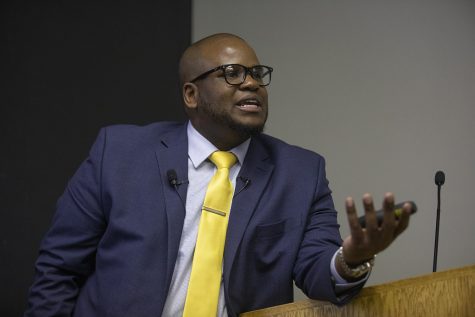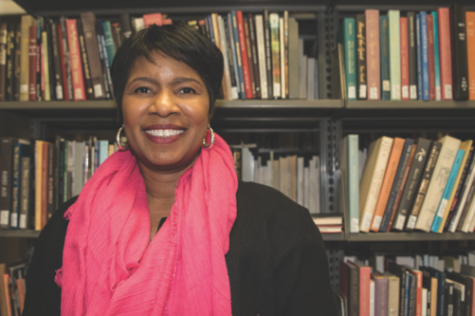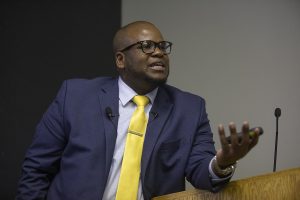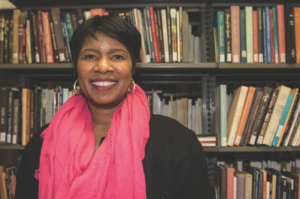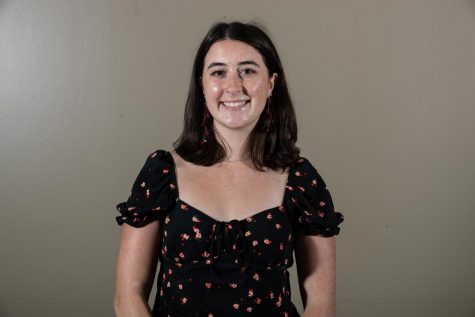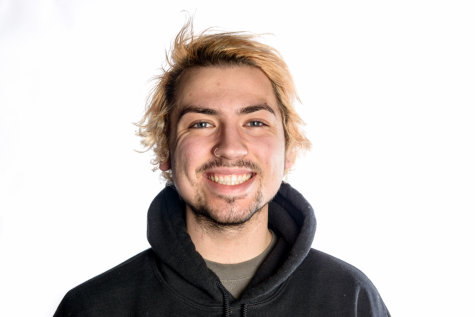Activist, pediatrician visited the UI to address the Flint public health disaster
Flint activist and pediatrician Mona Hanna-Attisha discussed her book “What the Eyes Don’t See: A Story of Crisis, Resistance, and Hope in an American City”, which is about her role in researching lead exposure in Flint’s water and how it affects the children she cares for.
Doctor Mona Hanna-Attisha speaks during an event for the University of Iowa College of Public Health’s Book Club at the College of Public Health on Monday, March 25, 2019. Doctor Mona spoke about her experiences exposing the water crisis in Flint, Michigan. The New York Times named Doctor Mona’s book “What the Eyes Don’t See” one of the 100 most notable books of the year in 2018.
March 25, 2019
In April 2014, after changes in the city’s water source, Flint, Michigan, became the subject of what is now known as a public-health disaster. An increase in water corrosiveness resulted in pipes releasing lead into the community’s water supply. When state officials told residents everything was fine, activist Mona Hanna-Attisha stepped in.
Hanna-Attisha, an activist, scientist, immigrant, and pediatrician, spoke with students and faculty at the UI College of Public Health Monday night about her book What the Eyes Don’t See: A Story of Crisis, Resistance, and Hope in an American City and her research and activism as a pediatrician in Flint.
“Something threatening in our water … was threatening the tomorrows of our children,” she said.
The book was told not only as a firsthand account of the injustices in Flint but also as a memoir of her story as an Iraqi-American immigrant who realized her own American dream, Hanna-Attisha said.
“This book is all about people, and places, and problems that we choose not to see in Flint and beyond … we have to take action even when it’s hard, even when it’s scary,” she said.
In the summer of 2015, Hanna-Attisha heard of the possibility of lead being released into Flint’s water and said she “freaked out.” Lead is not only an irreversible neurotoxin that can significantly affect children’s cognition and behavior, it is also a form of environmental injustice and racism against kids in underserved areas such as Flint, she said.
Because the significance of lead and its damage to children is so great, she said, she immediately started to research whether lead was getting into the bodies of Flint’s children.
RELATED: Grant expands UI winter course on Indian water poverty
As expected, she said, the results of her research indicated that the lead in Flint’s water was getting into the blood of children after the water had been switched from Lake Huron and the Detroit River to the Flint River. As a way to push the state to take action quickly, she then shared her findings at a press conference, she said.
However, her research and concern were not appreciated by the state.
“The state actively said I was wrong, that I was an unfortunate researcher, that I was causing near hysteria. So attacking me, attacking the science, attacking my credibility, and that felt like crap, I felt small, I felt defeated,” she said. “But ultimately, it was a recognition that this had nothing to do with me but really everything to do with the children that I had been entrusted to care for.”
Anna Correa, a UI first-year student studying public health, said the book discussion highlighted the importance of transparency in public health.
“The communication and accessibility of information among political officials, among experts in science and public health … are really important,” Correa said.
UI junior Megan Cellin, who studies health promotion, attended the discussion as part of her human-impacts class. She said a large part of her class focuses on “water being a huge difference and impact on air,” which Hanna-Attisha discussed.
“We learned a lot about human impacts and especially one with water being a hug difference and impact on air … and that’s why I found it interesting to come,” she said.
Hanna-Attisha said that in the process of restoring Flint’s water, it is most important to focus on the children.
“We can’t take away what happened,” she said. “But we are working around the clock to make sure that we do not see the consequences of this crisis. And what we have done is really built this model public health program to promote the development of children.”



